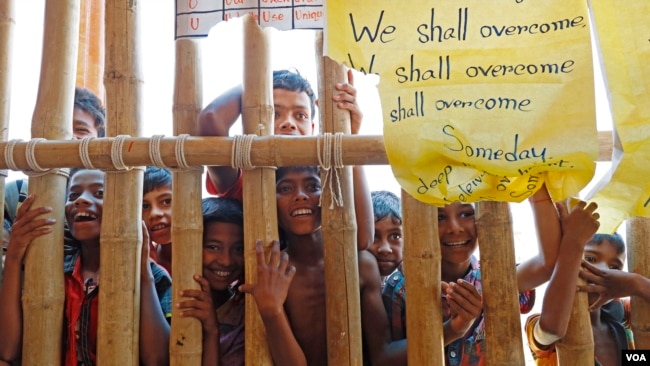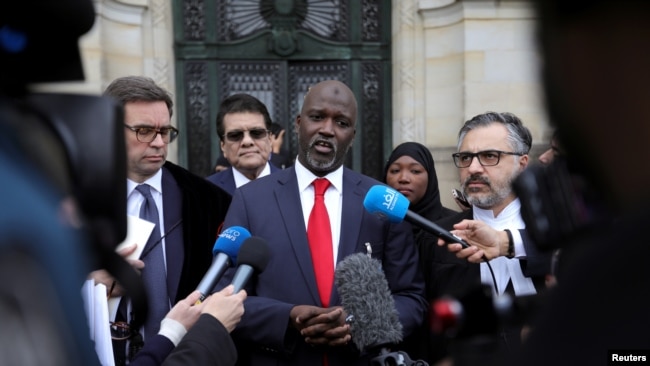Bangladeshi officials say they will expand educational programs for Rohingya children living in refugee camps. The hundreds of thousands of Muslim Rohingya children currently only receive basic lessons.
The children fled with their families from neighboring Myanmar to refugee camps in Cox's Bazar, Bangladesh.
400,000 children learning in refugee camps
The United Nations Children’s Fund, or UNICEF, runs many of the more than 3,000 small learning centers in the camps. The centers offer basic lessons in subjects like English, Burmese, life skills, drawing and math. The lessons do not follow an official curriculum, however.
About 400,000 children currently live in the camps. Some arrived as recently as 2017 or later. Others were born in the camps. The Bangladesh government has prevented learning centers in the camps from teaching children using Bangladesh’s education curriculum.

Rohingya children look into the makeshift classroom at Camp 4 in Cox's Bazar, Bangladesh Mar. 29, 2019. (Hai Do/VOA)
The new program is set to begin in April. The U.N. said the program will give the children a formal education using Myanmar’s plan of study, from grade 6 to 9. The U.N. says that 10,000 Rohingya children will take part in an experimental period of the program.
Formal education in Myanmar's language
Mahbub Alam Talukder is an official with Bangladesh's refugee commission. He said the government agreed with the U.N.’s idea of giving the Rohingya children a Myanmar education.
“They will be taught in Myanmar's language, they will follow Myanmar's curriculum, there is no chance to study in formal Bangladeshi schools or to read books in the Bengali language,” he said. He added that there is no plan for the refugees to stay in Bangladesh, “so through this approach they will be able to adapt to Myanmar's society when they go back.”

Gambia's Justice Minister Abubacarr Tambadou talks to the media outside the International Court of Justice (ICJ), after the ruling in a case filed by Gambia against Myanmar alleging genocide against the minority Muslim Rohingya population, in The Hague.
Human rights concerns
The U.N. and rights groups have welcomed the decision. Human Rights Watch released a report two months ago that criticized the Bangladesh government for not letting international organizations help provide a better education to Rohingya refugee children.
More than 1 million Rohingya Muslims have fled violence in Myanmar, which has a largely Buddhist population. Over 730,000 Rohingya left Myanmar after a violent military-led campaign against them in 2017. U.N. investigators have said the military campaign was carried out for “genocidal” reasons.
Earlier this month, the International Court of Justice asked the government of Myanmar to take emergency measures to stop genocide against the Rohingya.
I’m Jill Robbins.
Words in This Story
basic - adj. forming or relating to the first or easiest part of something
curriculum – n. the courses that are taught by a school or college
adapt – v. to change your behavior so that it is easier to live in a particular place or situation
What do you think of the situation of the Rohingya refugees?